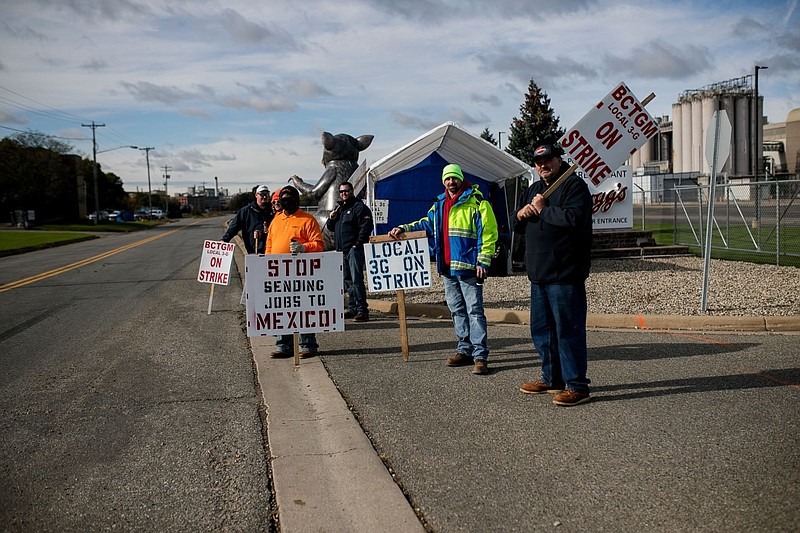The union representing about 1,400 Kellogg cereal-plant workers rejected the tentative labor agreement reached by negotiators last week, prolonging a strike that began more than two months ago.
"The tentative agreement was overwhelmingly rejected by the union body," said Dan Osborn, president of the Omaha, Neb., chapter of the union.
Kellogg said in a statement Tuesday that it was "disappointed" by the outcome and would hire permanent replacements for the positions vacated by striking employees.
"We have made every effort to reach a fair agreement, including making six offers to the union throughout negotiations," Kellogg spokesperson Kris Bahner said in an emailed statement. "It appears the union created unrealistic expectations for our employees."
"The prolonged work stoppage has left us no choice but to hire permanent replacement employees in positions vacated by striking workers," the company added in a statement.
The collapse of the deal extends one of the more high-profile union clashes at a time of renewed clout for organized labor in the U.S. Workers at four of Kellogg's U.S. plants walked out Oct. 5, leading the company to resume operations with temporary employees and salaried staff.
Kellogg shares rose 0.8% to $63.08 in New York trading Tuesday. The stock is up 3% this year, trailing a 25% advance in the S&P 500 index.
The tentative agreement between Kellogg and the members of the Bakery, Confectionery, Tobacco Workers and Grain Millers International Union included wage increases and would have continued to allow new workers to achieve "legacy" status as their tenures at plants endure.
The strike has largely revolved around the company's two-tier compensation structure, agreed to in 2015, in which newer employees earn lower wages and receive less generous benefits than veteran workers. Under the previous contract, the lower tier could include up to 30% of workers.
According to a summary provided by the company, the new agreement would have immediately moved all employees with four or more years at Kellogg into the veteran tier. A group of lower-tier employees equivalent to 3% of a plant's head count would move into the veteran tier in each year of the contract.
Permanently replacing workers on strike over economic issues like pay and benefits is legal, though Democrats are seeking to outlaw it in a bill known as the Protecting the Right to Organize, or PRO, Act. The House has passed the bill, but it faces long odds in the Senate.
Under the agreement, veteran workers, who Kellogg has said make about $35 an hour on average, would have received a 3% wage increase in the first year and cost-of-living adjustments in subsequent years.
Dan Osborn, president of a Kellogg workers local in Omaha, said in an interview shortly after the strike began that veteran workers at his plant felt especially frustrated by the company's offer after working long hours, often on weekends, during the pandemic. They believed they had leverage over the company because of a general worker shortage and because some of their skills are specialized.
In addition to Osborn's plant, Kellogg workers are on strike in Battle Creek, Mich.; Lancaster, Pa.; and Memphis.
The strike was part of an increase in labor unrest this fall, including strikes by 10,000 John Deere workers and more than 2,000 hospital workers in New York, each of which lasted more than one month.
Information for this article was contributed by Deena Shanker of Bloomberg News (WPNS) and by Noam Scheiber of The New York Times.
